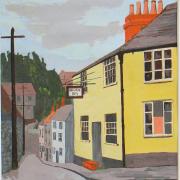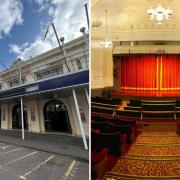Alice Cooke explains why this is a crucial issue...
The countryside has long been a tale of two halves – at least to those who don’t live there. In its simplest context it is perceived as being full of salt-of-the-earth, lowly agricultural workers and elitist snobby rich people who live in grand manor houses. But anyone who lives anywhere near our beautiful rural areas know that this is beyond farcical and couldn’t be further from the truth. Just as in urban areas, there are those who have more and those who have less, but there is no evidence of a greater class divide than anywhere else. Such archaic views belong to the likes of Downton Abbey and another age.
But before I ride off on my high horse, it has come to my attention that in Dorset those with less are being “forced out of the countryside”, that is according to the charity Dorset Community Action (DCA).
The charity revealed that a recent report by the Rural Housing Policy Review Group gave a crucial insight into the affordable housing crisis in Dorset. The report warns that families on low incomes face being forced out of the countryside faster than ever before as a result of recent policy changes.
DCA’s chief executive Alex Picot says: “Rural house prices have risen by 82% in 10 years due to strong demand compounded by years of a shortfall in house building. Add to this the lower wages for rural workers, and we see local people wishing to buy or rent, priced out of the community.”
The key concerns of the affordable rural housing crisis included a chronic shortage of houses, especially in communities of fewer than 3,000 people, where a total of just 2,279 new affordable homes were built in 2013/14. According to the report the fair share for rural areas should be 7,500 per year – that’s an average of one for each parish in the county.
There is a higher ratio between lower quartile house price and average incomes in rural areas. Houses in the countryside cost 8.4 times the average salary, compared to 6.4 in urban areas.
There is no longer a national rural housing development target, which means that developers will focus on urban areas where it is cheaper and easier to build. In 2011, grant rates were cut from an average of £45,000 per unit to £20,000.
DCA is a member of the ACRE (Action with Communities in Rural England) network of rural community councils. ACRE’s chief executive Janice Banks responded to the report by saying: “The future for rural affordable housing looks pretty bleak unless the next Government rises to the challenge, rethinks its funding strategy and reverses recent policy changes – particularly the ten-unit threshold on new sites.”
Were you aware that any of this was happening? It seems to have pretty effectively been brushed under the carpet in Dorset. Why didn’t we know more about this sooner? And are we really going to let this happen? Come on Dorset…don’t let this be the way we are. Demand a fair deal for our rural communities. Dorset’s countryside is amazing, but it is for everyone to live in and enjoy – go to dorsetcommunityaction.org.uk to find out more and to view the report of the Rural Housing Policy Review Group, A Fair Deal for Rural Communities.
Let us know what you think by tweeting us @dorsetmag or get in touch via Facebook.
***
READ ON
• General election 2015 in Dorset - candidates and constituencies - The next general election in the UK takes place on Thursday 7 May 2015. We’ve put together a handy Dorset guide to polling day; including candidates for each constituency and the results from 2010.
• Cuts to bus services in Dorset - opinion page - Dorset has experienced some of the biggest cuts to bus services in the whole country. Rural areas have taken the hardest hit, but do we care that we’ve left some people stranded? Alice Cooke looks at the facts behind the cutbacks.



























